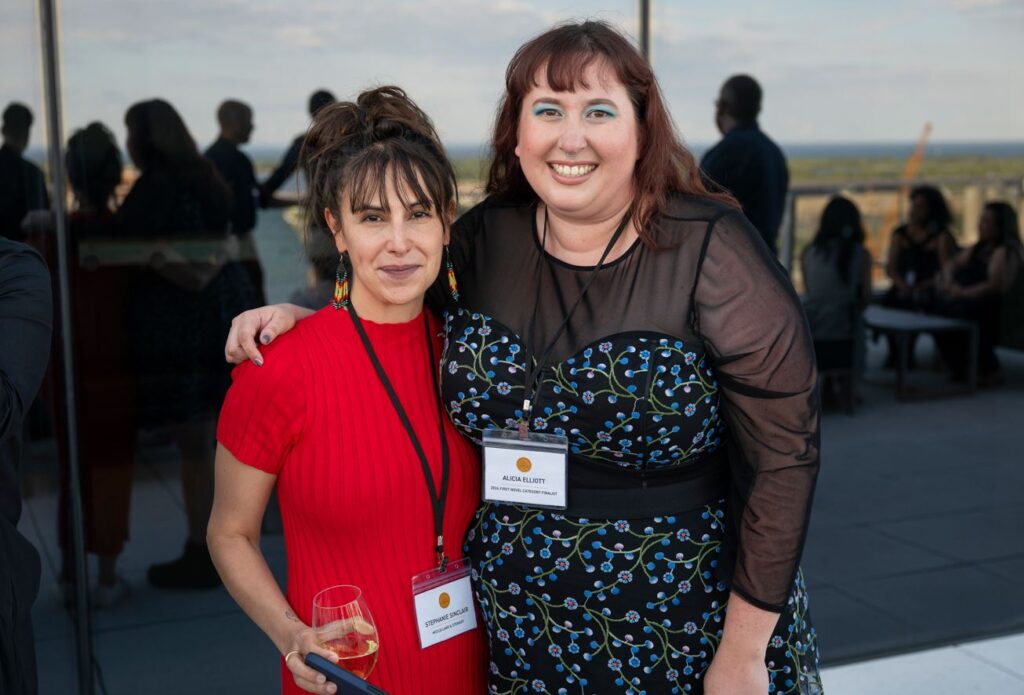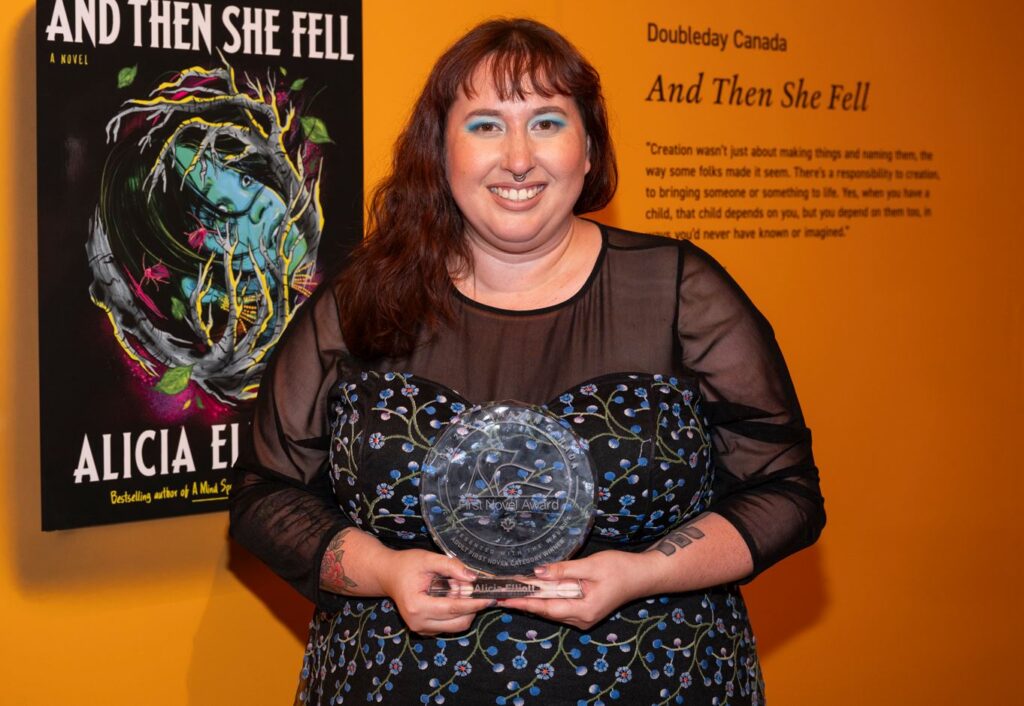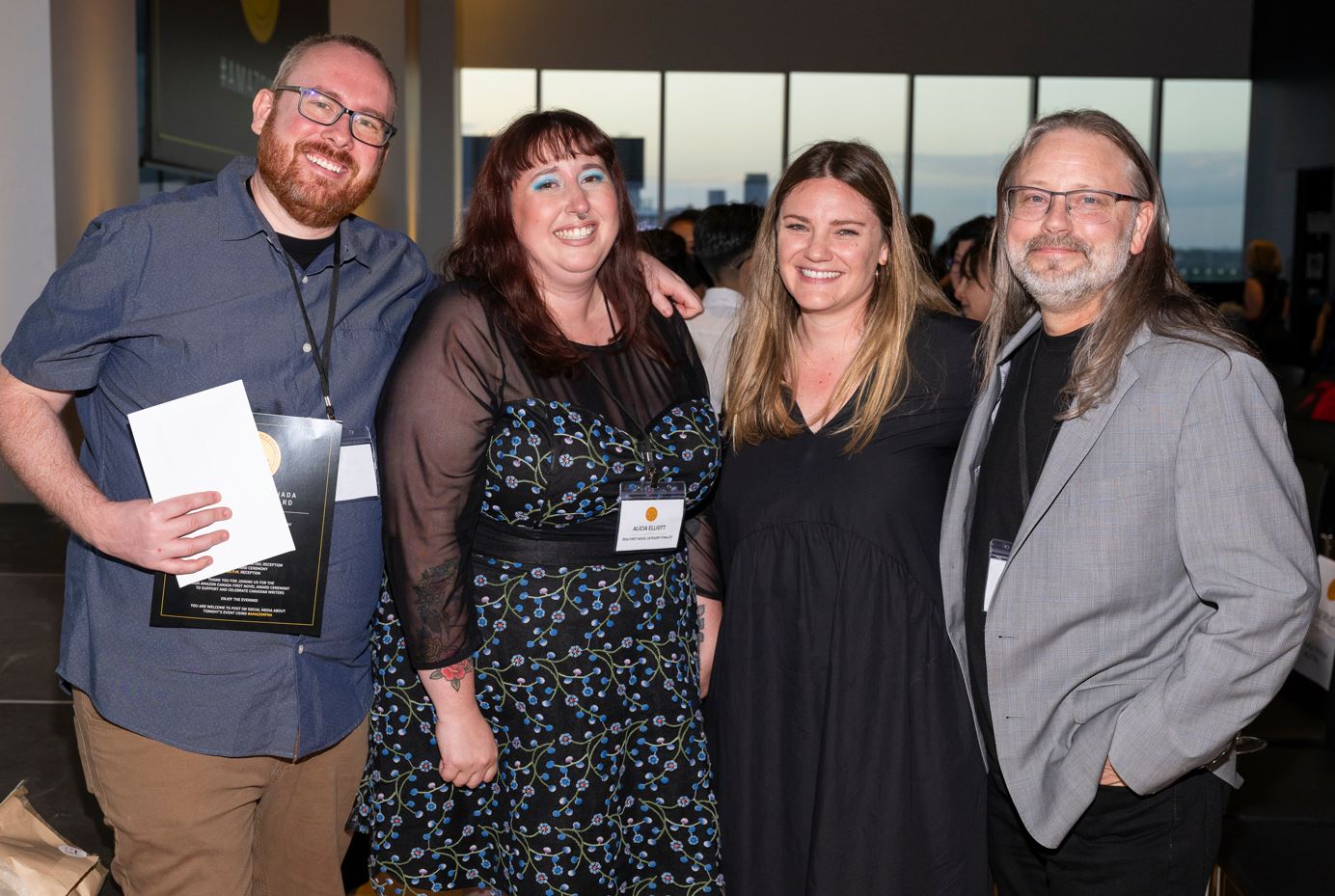Alicia Elliot has always been a writer and after many years of plying her craft, she has been recognized for her writing with various honours including the Amazon First Novel Award, her most recent one.
Elliot, who was born in the United States, moved to Canada, at an early age with her family.
“My family moved around a lot [and that’s] something common with families where there’s financial instability. I was born in Buffalo, and [also] lived in Ohio. We then moved to Six Nations because my dad’s stepfather died, and he had some land that was willed to him. And he decided he wanted to move us home,” Elliot said. “We moved there when I was in Grade nine, [and as] people who live on Six Nations know, there’s really not much in the way of high schools there. Everybody’s getting bused out to different places [so] my dad had arranged for me to go to Pauline Johnson, so I was getting bussed there…it was always a little bit challenging for me…[because] I was always [thinking] that we were going to move again. I never really had a chance to feel like I was going to stay settled in any place.”
However, Elliot had started writing in her childhood, focusing on fiction, and in rare instances, sharing her work.
“When I was younger, I would write [with] the intention of writing a novel…I would get a couple of chapters in and then decide that I was going to start something else. It was very start-stop when I was fairly young,” she said. “In junior high, there was a writing exercise which I did [and] one of my teachers really liked it…[that gave me] validation that I was pretty good at writing. Then in high school, I was in these different writing courses where I had to share my work with the teacher…and I would share stuff with my dad sometimes, and he would edit some of my writing.”

After graduating university, Elliot found herself juggling many priorities in her life while looking for opportunities to write.
“While I was working at Starbucks and raising my son, I was trying to branch into different writing, and [started to do] freelance work. And so, I came up with a piece for Briarpatch magazine [called “The Meaning of Elections for Six Nations”,] and they accepted it,” Elliot said. “I grew up on Six Nations [and] when [I saw] everything that happened at the Douglas Creek Estates. Prior to that, my father was involved in protesting the Red Hill Valley Parkway being built over the Red Hill Valley. I feel like politics has always been something that has been important in my life.”
Although Elliot primarily wrote fiction, she continued to build a strong reputation as a talented non-fiction writer through her freelance work.
“I thought that my first book was going to be fiction…I had thought that so many writers started with a book of short fiction, and then they’ll move on to their novel…and I figured I was going to have that happen,” she said. “I had gone through an undergraduate program for creative writing, but I had not gotten into any MFA programs. Many of these programs rejected me [so I] taught myself by reading other people’s work in how to write and figuring out how a story works.”
All the hard work paid off; in 2017, her essay ‘A Mind Spread Out on the Ground,’ was included in a book of essays by Leanne Betasamosake Simpson. Elliot would win a National Magazine Award for her essay.
“She’s the one who encouraged me to write that essay…she was the editor in charge of acquiring non-fiction pieces for an all-indigenous issue of the Malahat review. I had met her [before] and she had known that I was writing nonfiction, so [asked me] to submit something,” Elliot recalled. “I knew I couldn’t let down one of my idols…she had empowered me and compelled me to write that essay, and I think that was the turning point in terms of my nonfiction writing and my career.”

Elliot, who is based in Brantford, followed that by winning the RBC Taylor Emerging Writer Award in 2019.
“That one meant a lot because it was chosen by Tanya Talaga…she contacted me, and she had read a very long-form piece that I had written in The Globe and Mail in their op-ed section [and] it was a word piece on the way that the Liberal government had split the lead Indian Affairs into crown, Indigenous relations, and Indigenous services…two different ministries, and how that was done without any consent like so many things have been done without any consent or consideration of Indigenous people. I wrote that, and she had read it and was impressed,” Elliot reflected. “We then met up, and she told me that she wanted to give me the award. It was very shocking because it was a large amount of money which I had no concept of at the time…I think it was $10,000 and that was so much because I was still working at Starbucks…I really respect her as a journalist, as a writer, and as a person of integrity in not only Canadian media but also within the Indigenous communities more broadly.”
After winning the award as well as an RBC Taylor Prize for a piece titled ‘Seven Fallen Feathers,’ Elliot secured an agent and was soon asked for a book proposal that would become ‘A Mind Spread Out on the Ground,’ which was a collection of essays.
“I had to write it really fast after it got accepted for publication. It was kind of a blur, because I had to write quickly; and I was doing that on top of taking other freelance jobs. It was difficult, but because it demanded so much emotionally of me, and I think if you’re going to write nonfiction, and it’s going, to be honest…it’s going to be more than just a reflection of your own experiences, but it’s going to resonate with other people’s experiences,” she explained. “I wrote that knowing that it was going to take a lot out of me. And then the process of promoting it, [was] demanding in a different sense. I was happy to have a book published [as] it was something that I had always wanted to do…and it’s funny, because I never thought that my first book would be a collection of essays; I had always thought it was going to be fiction.”

Eventually, Elliot would publish her first novel, ‘And Then She Fell,’ to strong reviews and positive reactions.
“I really loved working on this novel. I loved my protagonist. Even though it was a difficult subject matter, I always found it important to [create] moments of levity, [as well as] moments of strangeness. I was aware that [the novel] wouldn’t necessarily resonate with everyone, that there’s a particular idea of what indigenous writing is and what it can be, [and] the possibilities that it holds. I accepted that this book wasn’t going to be for everyone, and I was fine with that because if you’re writing for everyone, you’re writing for no one,” explained Elliot. “When it was released, my main concern was that if it was going to resonate with Indigenous people, more specifically, people from Six Nations who read it. And because I had a responsibility in portraying my people and people from my rez…And the other group of people that I was mostly concerned with were people who had experienced psychosis and mania, because that’s depicted in the book. I wanted them to feel seen and held by the work [by] the depiction of not only that experience but also the resolution of it. And after hearing feedback from people from those communities, it was positive [and] I knew that I had done what I set out to do.”

The novel would go on to win the Amazon.ca First Novel Award in 2024, something that both surprised her and humbled her.
“Winning this award really shocked me, because I was not anticipating it [and] I just thought to myself that I was okay in not winning it [because the] other nominees were incredible writers and people and their books were fantastic. But at the ceremony the jurors were talking about my book in ways that I had not considered [such as for] its poetic and civil language,” she recalled. “When my book won, I was just very grateful, and it was very emotional for me because the jurors, in particular, were writers who I respected [and] knowing that they had seen something special in my book was very humbling and also affirming.”
Nevertheless, Elliot, who has persevered through many trials and tribulations in her life, has always made it a point to acknowledge the help of many mentors along the way who have encouraged her to find her voice and to keep on writing.
“I’ve had plenty of mentors like Tanya Talaga [who] every time I’ve encountered has been nothing but gracious, generous and wise. I met Waubgeshig Rice very early in my career, and he has been just an incredible mentor and friend. I am very grateful to him. Eden Robinson is also someone who is the literary anti- to all young Indigenous writers [and] she has done so much. She goes above and beyond for writers, and keeps tabs on all of us and checks in on us,” Elliot noted. “Cherie Dimaline has been someone who has been very supportive [and has] also very generous with her time and energy [and] Leanne Betasamosake Simpson has also been fantastic…all of these writers have been very important to me, and I can’t express how grateful I am to them, not only what they’ve done for me, but also what they have done for a lot of other Indigenous writers and writers in general; they’re such amazing people.”
